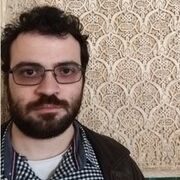Probabilistic Solutions and Stochastic Representation of Fractional Differential Equations
A special issue of Fractal and Fractional (ISSN 2504-3110). This special issue belongs to the section "Probability and Statistics".
Deadline for manuscript submissions: closed (17 August 2022) | Viewed by 10408
Special Issue Editors
Interests: generalized fractional calculus; lévy process; bernstein function; subordinator; nonlocal abstract Cauchy problems; subordinated Brownian motion
Interests: probability and mathematical statistics
Interests: stochastic processes; gaussian processes; first passage problem; fractional stochastic processes; diffusion processes; fractional brownian motion; queueing theory; stochastic time changes; neuronal models
Special Issue Information
Dear Colleagues,
Fractional differential equations have been shown to be an important tool in probability due to their strict connection with some classes of processes that are widely used for modeling purposes. With this connection, different stochastic representation results have arisen, which are helpful in a twofold way: on one hand, one can use fractional equations (and both analytical and numerical methods for them) to determine some characteristics of the considered process; on the other hand, fractional equations gain a more visualizable interpretation (that was already useful in the classical case) that can help to determine some properties of their solutions. This interplay is mirrored in the modeling context as fractional differential equations are used to represent macroscopic behavior whose microscopic explanation is given by the involved stochastic processes. For these reasons, finding probabilistic solutions to (possibly generalized) fractional differential equations improves both our knowledge on the equation and the involved process, thus leading to an improvement of the modeling techniques involving fractional operators. Potential topics include but are not limited to:
- Stochastic representation results for solutions of time/space-fractional ordinary and partial differential equations;
- Probabilistic solutions to distributed-order time/space-fractional ordinary and partial differential equations;
- Generalized fractional calculus, time-nonlocal equations, and stochastic processes;
- Bernstein functions of elliptic operators and generators of jump processes;
- Fractional order stochastic (partial) differential equations;
- Deterministic and stochastic modeling involving fractional order operators;
- Numerical methods for fractional (partial) differential equations.
Dr. Giacomo Ascione
Dr. Alessandra Meoli
Prof. Dr. Enrica Pirozzi
Guest Editors
Manuscript Submission Information
Manuscripts should be submitted online at www.mdpi.com by registering and logging in to this website. Once you are registered, click here to go to the submission form. Manuscripts can be submitted until the deadline. All submissions that pass pre-check are peer-reviewed. Accepted papers will be published continuously in the journal (as soon as accepted) and will be listed together on the special issue website. Research articles, review articles as well as short communications are invited. For planned papers, a title and short abstract (about 100 words) can be sent to the Editorial Office for announcement on this website.
Submitted manuscripts should not have been published previously, nor be under consideration for publication elsewhere (except conference proceedings papers). All manuscripts are thoroughly refereed through a single-blind peer-review process. A guide for authors and other relevant information for submission of manuscripts is available on the Instructions for Authors page. Fractal and Fractional is an international peer-reviewed open access monthly journal published by MDPI.
Please visit the Instructions for Authors page before submitting a manuscript. The Article Processing Charge (APC) for publication in this open access journal is 2700 CHF (Swiss Francs). Submitted papers should be well formatted and use good English. Authors may use MDPI's English editing service prior to publication or during author revisions.
Keywords
- stochastic processes
- fractional order differential operators
- distributed order differential operators
- fractional calculus
- generalized fractional calculus
- time/space-nonlocal equations
- bernstein functions
- jump processes
- semi-markov processes
- stochastic modeling
- numerical methods for fractional differential equations
- stochastic simulation
Benefits of Publishing in a Special Issue
- Ease of navigation: Grouping papers by topic helps scholars navigate broad scope journals more efficiently.
- Greater discoverability: Special Issues support the reach and impact of scientific research. Articles in Special Issues are more discoverable and cited more frequently.
- Expansion of research network: Special Issues facilitate connections among authors, fostering scientific collaborations.
- External promotion: Articles in Special Issues are often promoted through the journal's social media, increasing their visibility.
- e-Book format: Special Issues with more than 10 articles can be published as dedicated e-books, ensuring wide and rapid dissemination.
Further information on MDPI's Special Issue polices can be found here.







